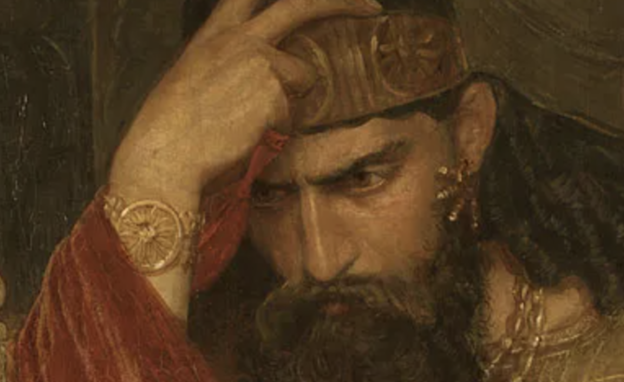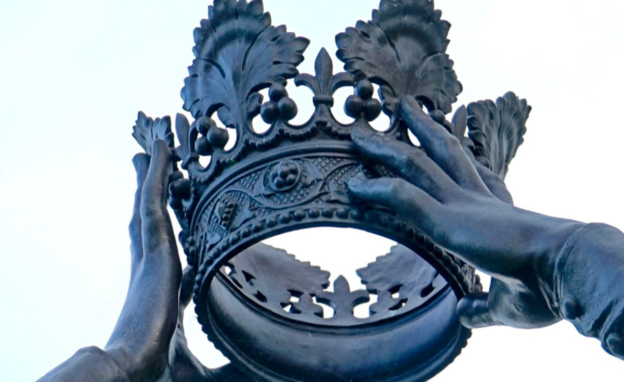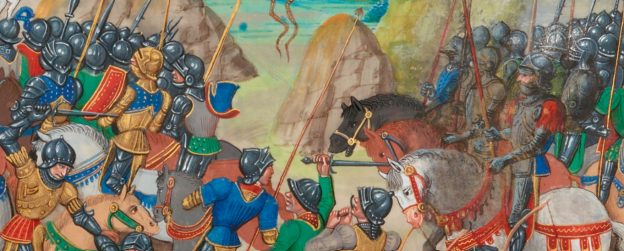What is true repentance? Is it saying the right words, or is it more? Is it motivated because we realise we have offended God, or because we are worried about the consequences of our sin? Is it enough to say the right words as part of God’s people when our deeds come out in the open, or must we repent with heartfelt conviction of sin?
In this passage, Saul’s repentance was the former, and was false repentance. Saul’s rejection and the judgement of Agag that followed remind us of the importance of heartfelt confession of sin to God; not to avoid or mitigate the consequences, but because we have offended him. To not do so is to walk the path to apostasy, and face God’s ultimate judgement.
When God sent Saul and Israel to bring judgement on the Amalekites, the expectation was total destruction, not keeping the king and the best of the flocks for the people to enjoy (vv.1-16). As the sheep and cattle bleated behind him, Saul received the announcement of God’s judgement; God had rejected Saul as king because of his sin (v.23).
It was only then that Saul appeared to recognise the seriousness of the sin he had committed, by not following God’s commands. He responded “I have sinned, for I have transgressed the commandment of the LORD and your words, because I feared the people and obeyed their voice. Now therefore, please pardon my sin and return with me that I may bow before the LORD” (vv.24-5).
On its face this appears like an acceptable repentant tone. But the repentance was superficial, directed towards Samuel rather than God, and appeared concerned with maintaining Saul’s standing amongst Israel rather than God’s standing. It only occurred after Samuel strongly and repeatedly accused then rebuked Saul (vv.15-23). Saul blamed his conduct on pleasing the people (“sorry but”). Finally, while the words appear good on their face, Samuel himself (as God’s prophet) refused to accept as reasonable Saul’s repentance (v.26).
As a result, Saul’s repentance was rejected. Samuel refused to accompany Saul, because Saul had rejected God’s words and so God had rejected Saul (v.26). Where Saul had been meant to fear God (12:14), he feared the people (v.24). Instead of obeying God (12:14), Saul obeyed the people’s voice (v.24). He was a man-pleaser, not a God-pleaser.
Desperately, Saul clung to Saul’s robe as Samuel turned to leave (v.27). But it tore, which Samuel told Saul was symbolic of the tearing of the relationship between Saul and God (v.28). Someone else would receive the kingdom, and God would not regret this act (vv.28-9).
In a worldly way, Saul again addressed Samuel asking him to accompany him “before the elders of my people and before Israel” to avoid the terrible loss of face that publicly losing the appearance of God’s favour would bring (v.30). Perhaps recognising the risk of a power vacuum, Samuel agreed to this request (v.31).
What then followed was a demonstration of Samuel’s faith and obedience compared to Saul’s, as he brought judgement on Agag. While Agag thought he was home scot-free, Samuel reminded Agag of his ancestor’s guilt and also his own, then hacked him to pieces; a portent of the destruction that awaits all God’s enemies (vv.32-4).
After this Samuel and Saul went their ways, and despite living within walking distance of each other, never saw each other again (v.35). Despite the words and acts, Samuel grieved over Saul’s sin. So too, did God.
In truth, it is likely that Saul, though a member of the covenant family, never truly believed in God. He did the right things and said the right words, sometimes anyway, but not when it counted. When it counted, Saul followed the world and sought to please men, not God. He never truly repented of his sin.
This passage shows us that true repentance for sin is not based on words or formulae, but sorrow and a move of the heart. It does not excuse itself by blaming others, and the focus is on the offence caused to God, not the harm that the judgement will have on us.
Words alone are not enough to save us, or the right genes. We must have a vibrant relationship with God, confessing our sins to God and recognising the harm they cause God, not the cost or harm so much to us.
Unlike Saul, we must not harden our hearts and reject God’s Word. We are privileged to have tasted the heavenly gifts, and seen God’s power displayed through his saving acts and in the Church today (Heb 6:4-6). To reject God’s Word is to reject God, to be apostate. Superficially repentant, but still in sin and under God’s judgement.
Today is the day to truly repent. Today is the day to seek to please God, not people. Today is the day to know that if we truly do so, God will forgive our sins and cleanse us from all unrighteousness (1 John 1:9).



